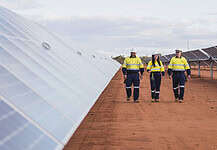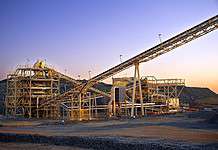 PRIME Minister Tony Abbott defended coal to world leaders at the G20 summit in Brisbane last month despite increasing pressure for further action on climate change.
PRIME Minister Tony Abbott defended coal to world leaders at the G20 summit in Brisbane last month despite increasing pressure for further action on climate change.
The G20 Leaders’ Communiqué included a lengthy section on climate change, including a pledge to phase out fossil fuel subsidies.
However, major media outlets reported Mr Abbott had argued against focusing on climate change in the communiqué in private leaders’ sessions.
According to Fairfax Media, Mr Abbott launched an “impassioned defence” of coal to other G20 leaders, however was opposed by European leaders and US President Barack Obama.
Mr Abbott, who earlier this year described coal as “good for humanity”, emphasised the role coal had to play in the developing world in remarks at the summit’s closing.
“A fifth of the globe doesn’t have access to electricity,” he said.
“We’ve got to give them access to electricity and coal is going to be an important part of that for decades to come.”
The comments came after Mr Obama used an address at the University of Queensland to call on Australia to step up its fight against climate change. “One of the things [Australia and the US] have in common is we produce a lot of carbon,” he said.
“Part of it is this legacy of wide-open spaces and the frontier mentality, and this incredible abundance of resources. “Historically, we have not been the most energy-efficient of nations, which means we’ve got to step up.”
The US and China announced a landmark deal on climate change just prior to the G20 summit, committing both countries to limiting their carbon emissions.
Minerals Council of Australia chief executive Brendan Pearson said the agreement provided opportunities for the Australian coal sector, which is a major source of Chinese energy.
“The target of China’s effort will be to reduce the use of low quality coal in boilers and small manufacturing and shift the emphasis to modern, highly efficient centralised supercritical coal-fired power generation,” he said.
“That will require high quality coal which Australia is well placed to supply. “Technological innovation in carbon capture, utilisation and storage and energy efficiency will enhance the capacity of nations to reduce their emissions without harming economic growth.”
In a landmark address to the Australian Parliament after the summit, Indian Prime Minister Narendra Modi emphasised the importance of clean energy in the relationship between the two countries, with India fast becoming a major investor in Australian coal.
“Energy that does not cause our glaciers to melt — clean coal and gas, renewable energy and fuel for nuclear power,” he said.

























